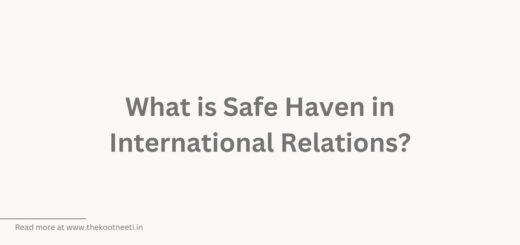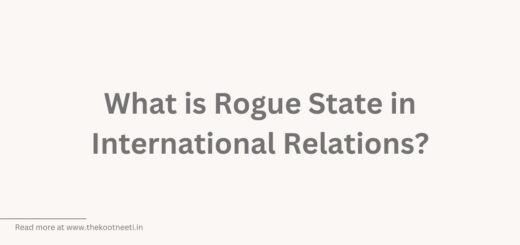What is Sovereignty in International Relations?

Sovereignty is the supreme authority within a territory or state. It refers to the power of a government to make and enforce its own laws, regulations, and policies, and to control its own affairs without interference from other countries or external actors.
Sovereignty is a central concept in international relations, and it is an important aspect of the modern system of nation-states. The concept of sovereignty is based on the idea that states are independent and self-governing entities that are not subject to the authority of other states or external actors.
There are different types of sovereignty, including internal sovereignty, which refers to the power of a government to control its own affairs within its own territory, and external sovereignty, which refers to the recognition of a state’s independence and self-governance by other states and international organizations.
Sovereignty is not absolute, and states may voluntarily give up some of their sovereignty in order to cooperate with other states or to join international organizations. However, the principle of sovereignty is widely recognized in international law and is an important aspect of the rules and norms that govern relations between states.
Difference between sovereignty and monarchy
Sovereignty is the supreme authority within a territory or state, while monarchy is a form of government in which a single individual, usually a king or queen, holds the power to rule.
Sovereignty refers to the power of a government to make and enforce its own laws, regulations, and policies, and to control its own affairs without interference from other countries or external actors. Monarchy, on the other hand, is a specific form of governance in which a single individual, usually a monarch, holds the power to rule. The monarch may have absolute power or may share power with other institutions, such as a parliament.
In a monarchy, the monarch is the head of state and may have ceremonial or symbolic duties, but may not necessarily have the power to make or implement policy. The power to govern may be exercised by other institutions, such as a parliament or a prime minister.
Sovereignty and monarchy are not the same thing, but they can be related. In a monarchy, the monarch may be the embodiment of the state’s sovereignty and may hold the power to exercise that sovereignty. However, the concept of sovereignty is not limited to monarchies and can apply to any form of government.


















